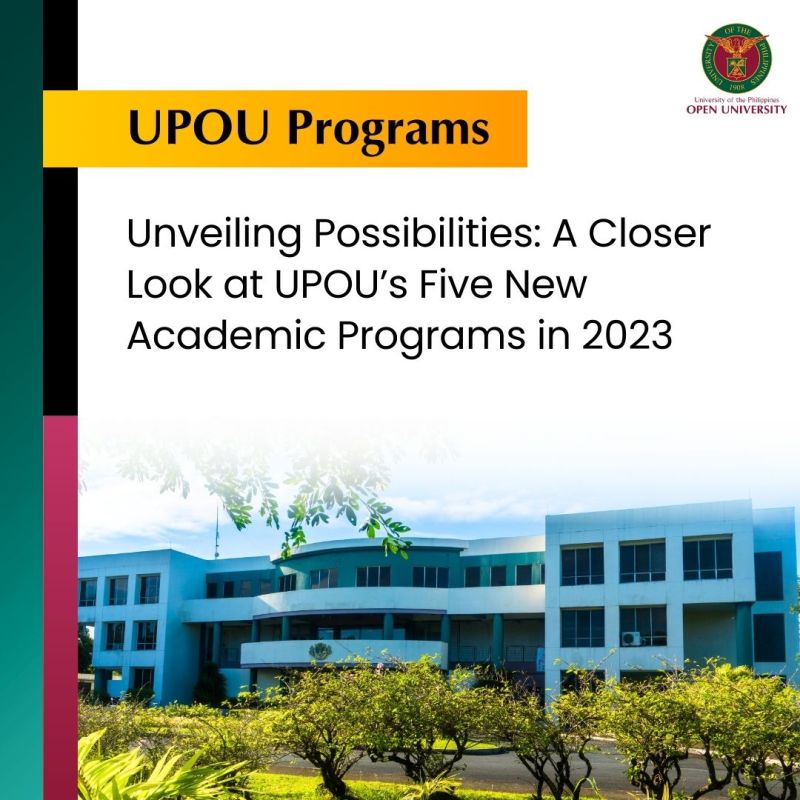
In 2023, the University of the Philippines Open University (UPOU) marked a turning point as it added new programs that created pathways to exciting new opportunities. Four (4) fresh associate programs and a groundbreaking doctorate program are now open, inviting learners to enter a world of quality higher education.
The new associate programs are two-year pre-baccalaureate degree programs that may guide learners to pursue Baccalaureate degree programs in the university. The four programs are Associate of Arts in Digital Design and Art (AADDA), Associate of Arts in Digital Entrepreneurship (AADE), Associate of Science in Information Technology (ASIT), and Associate of Science in Instructional Design and Technology (ASIDT). These programs are meant to immerse learners in the digital career path, especially with the increasing demand for digital professionals.
The AADDA program from the Faculty of Information and Communication Studies (FICS) at UPOU opens learners to digital creativity. This program is more than just a pathway to the Bachelor of Arts in Multimedia Studies—it’s also a journey through different communication professions. UPOU ensures AADDA students master technical capabilities and establish an interdisciplinary viewpoint for delivering top-tier digital creative and design products, meeting the expanding demand for professional digital creatives globally.
The business of the future is within reach with the new AADE from UPOU’s Faculty of Management and Development Studies (FMDS). This program is the key to fusing your drive for business with your digital expertise. It’s a program designed for individuals enthusiastic about introducing innovation into their projects or entering the digital field. It is a ticket for learners to stay ahead in a post-pandemic world that needs digital experts.
The ASIT program offered by UPOU’s FICS is perfect for learners to keep up with the rapid technological advancement. Unlike traditional computer science degree programs, ASIT skips the heavy theories and math, zooming in on computing essentials, algorithms, and cutting-edge IT.
The ASIDT program, offered by the Faculty of Education (FED), is a dynamic program that prepares learners for eLearning and arms them with practical skills in instructional design for diverse learning landscapes. The program solves the growing demands of eLearning and various learning environments. It equips its students with multi-faceted career paths.
On the other hand, UPOU’s new Doctor in Sustainability program weaves theory with real-world finesse crafted to meet the drive for skilled professionals in transformative research and foster flexibility in mastering economic, social, and environmental sustainability. This curriculum promotes collaboration, turning practitioners and academics into co-creators of knowledge.
UPOU continues to uphold its mandate of providing quality higher education and bringing in new opportunities for learners through these five new programs. UPOU is committed to shaping students into resilient, competitive trailblazers ready to conquer adversity. Learners can further look forward as the university is inclined to pioneer more innovative programs in the coming years.
For more information, visit us at www.upou.edu.ph. Alternatively, you may also visit the website of the UPOU Faculty of Studies — Faculty of Education (www.fed.upou.edu.ph); Faculty of Information and Communication Studies (www.fics.upou.edu.ph); and Faculty of Management and Development Studies (www.fmds.upou.edu.ph).
Written by Zyrene Edrei Villanueva ♦ Edited by Myra C. Almodiel and Anna Cañas-Llamas ♦ Graphics by Lovelyn P. Petrasanta








